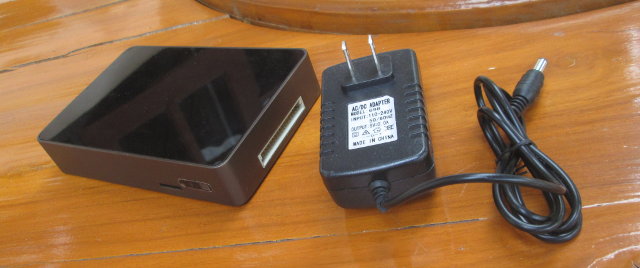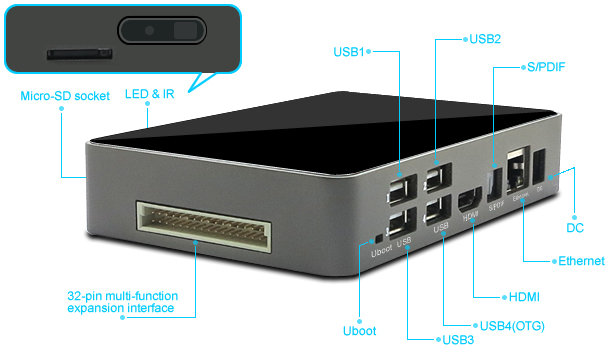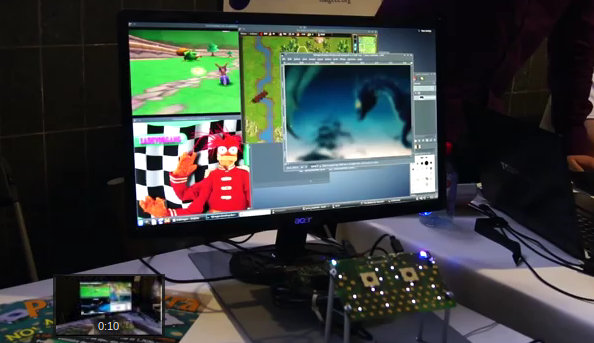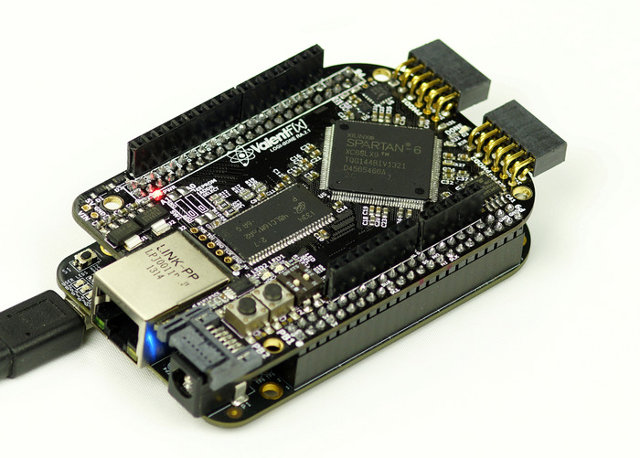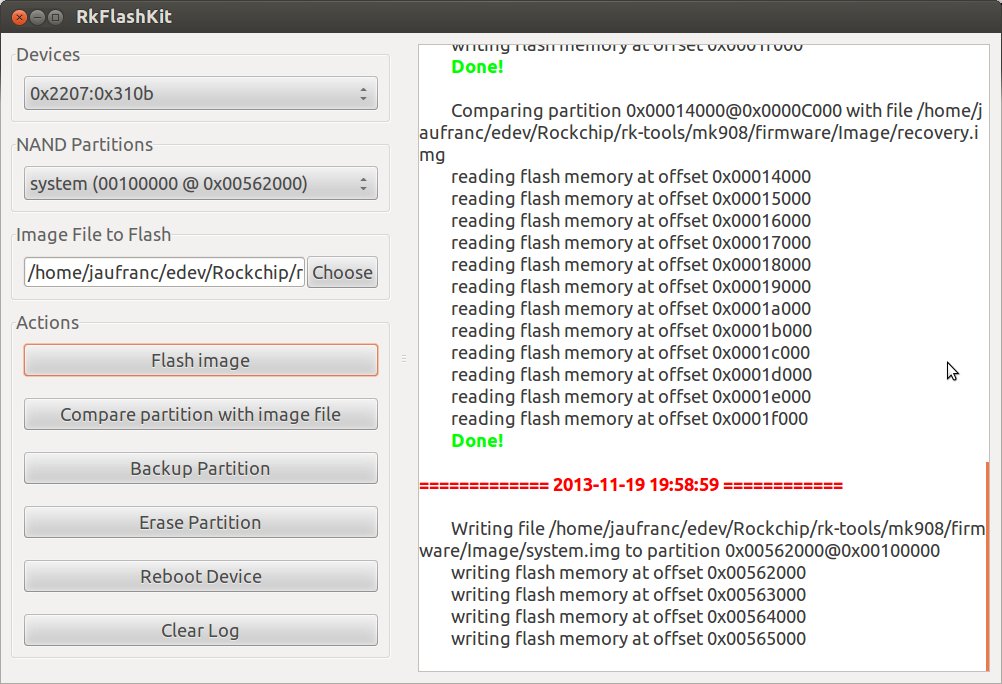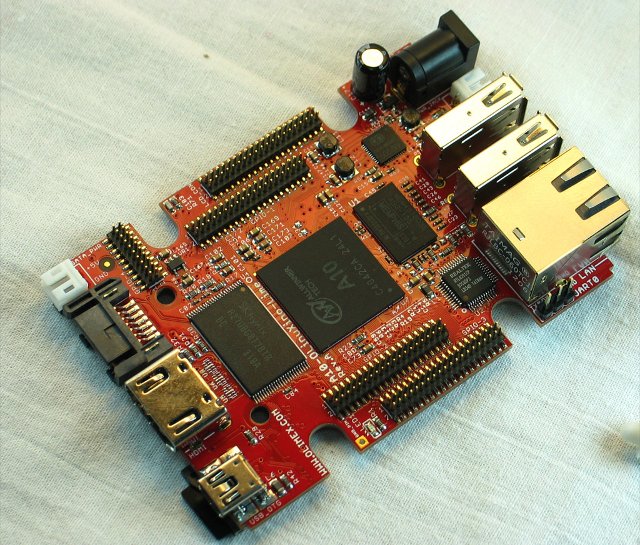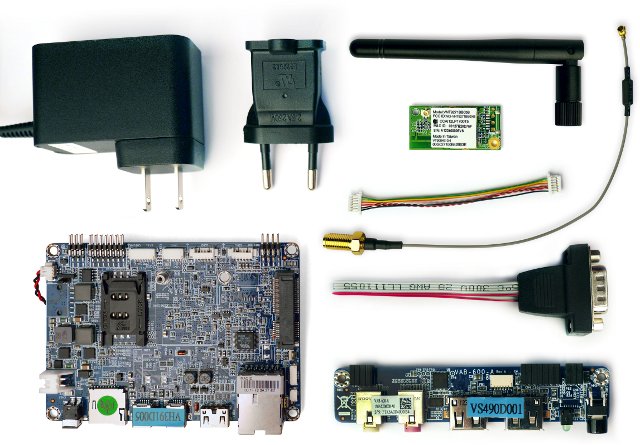ITEAD Studio IBOX is an AllWinner A20 based mini PC currently running Android or Linux distributions currently featured on Indiegogo. I’ve already written about IBOX in a separate post, where you can get all the specifications, but the company has also sent me a unit (engineering sample) for review. Since the system is still in development, and it’s mostly a development platform, I won’t do a review with video testing, system performance, etc… as usual, but rather show the progress and current issues in terms of hardware and software, and I’ll also mention documentation, and shortly try Android 4.2 (pre-installed) and the Debian 7.0 image released by the company. IBOX Unboxing Pictures I’ve received the device in a cartoon box containing the device itself and a 9V/2A power supply. If you are or become a backer on Indiegogo you’ll also receive an add-on board providing access to a SATA connector, […]
Dedicated Hosting Services on ARM Development Boards (Cubieboard2, Raspberry Pi, ODROID…)
At least two companies have recently launched hosting services using dedicated ARM servers based on low cost development boards: NanoXion with its NX-BOX service powered by PiBox (Raspberry Pi) and CubieBox (Cubieboard 2) microservers, and miniNodes with servers based on Cubieboard2 first, then ODROID development boards, and possibly AllWinner OptimusBoard once/if it becomes available. The PiBox will feature a Raspberry Pi Model B with 512 MB RAM, and 16GB Class 10 UHS-1 microSD card by Samsung, and the dual core Cubiebox comes with 1GB RAM and a Crucial M500 SATA III 120GB SSD. Both NX-BOXes run Linux Debian Server NX distribution, support instant remote reboot, with guaranteed 10 Mbps connectivity for IPv4 & IPv6, and unlimited bandwidth. The boards are all hosted in France. The company expects their ARM servers to be used as private cloud servers, backup servers, private chat servers, web servers, mail servers, DNS Servers, monitoring servers, and […]
ITEAD Studio IBOX Powered by AllWinner A20 Features a 32-Pin Hacker-Friendly Connector (Crowdfunding)
ITEAD Studio IBOX is a mini computer powered by AllWinner A20 dual core Cortex A7 processor with 1GB RAM and 4GB Flash, a few USB connectors, Ethernet and video/audio connector. This mini pc can run both Android & Linux, and features a 32-pin connector that allows to connect expansion boards. Let’s have a look at the specifications: SoC- AllWinner A20 dual core ARM Cortex-A7 @ 1 GHz + ARM Mali 400 MP2 System Memory – 1GB DDR3 RAM Storage – 4GB NAND Flash + microsd slot Video Output – HDMI Audio Output – HDMI, optical S/PDIF Connectivity – 10/100M Ethernet USB – 3x USB 2.0 host port, 1x USB OTG port (full size) Expansion – 32-pin proprietary connector with TV OUT, USB, LCD, UART, IR, CSI, SPI, SATA, GPIOS and power signals. Misc – LED , IR sensor, and U-boot button (FEL mode?) Power – 5V/2A 9V/2A Dimensions – 145 x […]
DragonBox Pyra Open Source Handheld Game Console To Feature TI OMAP5432 SoC.. or AllWinner A80, or Intel Bay Trail, or Qualcomm Snapdragon…
Pandora is an open source handheld console which development started as far back as 2007. The project has had ups and downs, and some people have yet to receive the device they pre-ordered. As many components are now more difficult to source, Pandora has reach end-of-life, as Pandora 2 is now being developed with a subset of the original team, but has been renamed to DragonBox Pyra to start afresh. The new version aims to take to the good aspects of the original Pandora, and improve on the bad ones, so that DragonBox will have a faster hardware with a better looking case and better control. Here are the specifications listed on the project website: SoC – Texas Instruments OMAP 5432 SoC with 2x ARM Cortex-A15 @ 1.7Ghz with NEON SIMD, 2x ARM Cortex-M4, Imagination Technologies PowerVR SGX544-MP2 GPU for 3D graphic, and Vivante GC320 GPU for 2D graphics System […]
$89 LOGi Development Boards Add FPGA and Arduino Headers to the Raspberry Pi and Beaglebone Black (Crowdfunding)
LOGi-Pi and LOGi-Bone are expansion boards featuring Xilinx Spartan 6 for respectively the Raspberry Pi, and the Beaglebone Black. Valent F(x), the company who designed the boards, is currently looking for funds via Kickstarter in order to bring the cost down to $89, or even $69 for early backers. LOGi boards specifications: FPGA – Xilinx Spartan 6 LX9 TQFP-144 FPGA 9,152 Logic Cells, 16 DSP48A1 Slices, 576KB Ram, and 96 User Available I/O Pins System Memory – 256 Mb SDRAM connected to the FPGA Storage – 1x High Bandwidth SATA connector expansion port Video Output – 10x Length-tuned LVDS Pairs Connectors: 2x Digilent Inc. PMOD ports supporting 59+ plug-and-play hardware modules Arduino compatible headers connected to the FPGA pins (3.3v only) supporting over 200 Arduino Shields. Bit-Stream loading interface connected to the host processor, optional bitstream FPGA self-loading from onboard Flash. Misc – 2x LEDs 2x Push Buttons 2x DIP Switches 3.3v I/O Regulator and […]
How to Flash Rockchip RK3066 / RK3188 Firmware in Linux
Rockchip provides 2 tools to update the flash: RkBatchTool – Used to upgrade firmware with a single file RkAndroidTool – Used to flash the NAND flash with image corresponding to particular partition, e.g. system.img. kernel.img, boot.img. recovery.img. etc… One problem is that the company only provides these tools for Windows, so if you’re using a Linux based operating systems, you’d have to run a Windows XP or 7 virtual machine in VirtualBox or VMWare, which is an inconvenience, and requires a license in theory. To work around this issue, I’ve tried to use ReactOS, an open source operating systems compatible with Windows XP, but although the USB drivers appeared to install properly, RKAndroidTool failed to recognized my device (MK908). But a member of Mini PCs community informed me about a tool called RkFlashKit, written in Python and using GTK, that can flash firmware to Rockchip RK3066 and RK3188 devices in […]
Olimex Announces 30 Euros A10-OLinuXino-LIME Development Board for December
The Raspberry Pi, Beaglebone Black and Cubieboard are probably the best selling ARM Linux boards in the sub $50 category, but they’ll soon be joined by Olimex A10-OLinuXino-LIME powered by AllWinner A10 ARM Cortex A8 SoC with 512MB RAM that will sell for 30 Euros (About $40) when it becomes available in December. Another version of the board based on AllWinner A20 dual core Cortex A7 SoC, called A20-OLinuXino-LIME will also be sold, adding Gigabit Ethernet, and scheduled for Q1 2014. Pricing has yet to be disclosed for the A20 version. A10-OLinuXino-LIME specifications: SoC – AllWinner A10 ARM Cortex-A8 @ 1GHz with Mali-400 GPU System Memory – 512MB DDR3 Storage – microSD card slot, SATA, and optional 4GB NAND Flash Video Output – HDMI 1080p USB – USB-OTG + 2x USB Hosts Connectivity – 10/100Mbit Ethernet Expansions – 200 GPIOs on 0.05″ connectors Misc – Lipo battery management and connector, […]
VIA Announces $99 Springboard Platform for Android and Linux Development
Back in May 2013, VIA unveiled VAB-600 Pico-ITX board powered by WonderMedia WM8950 with an ARM Cortex A9 processor @ 800 MHz and a Mali-400 GPU. At the time they provided a starter kit with a 7″ display. The company has now announced the VIA Springboard Platform based on VAB-600 that is available without Wi-Fi for $99 or with Wi-Fi for $129. Here are the items included in the kits: VAB-600 Pico-ITX board with WM8950, 1GB DDR3 SDRAM, 4GB eMMC Flash memory and microSD slot. See VAB-600 post for detailed specifications. VIA VAB-600-A I/O extender card: 1 x Line-Out jack 1 x Mic-In jack 2 x USB 2.0 A-type ports 1 x Suspend LED power indicator 1 x Power On/Off button 3 x board-to-board connectors 1 x USB board-to-board connector VIA VNT9271 Springboard USB WiFi module (Wi-Fi Kit only) – Supports IEEE 802.11b/g/n standards and 802.11e WiFi Multimedia (WMM). Based […]

